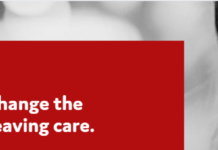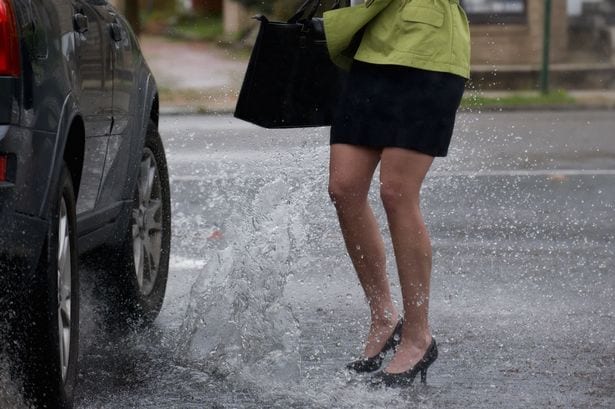- More than one in four of Welsh drivers admit to deliberately splashing a pedestrian on the pavement (26%) with almost three in five of those admitting to this crime being unaware this is illegal (57%)
- 28% of Welsh drivers admit to throwing litter from their car, making them more than twice as likely to do so compared to the regional average (11%)
- Over half (51%) in Wales were unaware they could be charged for smoking or vaping at the wheel and three in five (59%) were unaware they could face charges for eating or drinking at the wheel
As motorists return to the roads after lockdown, research by Tempcover has revealed that drivers in Wales are much more likely to admit to committing the following ‘minor’ car crimes: deliberately splashing a pedestrian on the pavement (26% compared to the 7% regional average), throwing litter from their car (28% compared to the 11% regional average), warning another driver about upcoming speed traps (42% compared to 29% regional average) and driving without wearing a seatbelt (23% compared to 10% regional average).
The survey also revealed that many Brits who admitted to committing the following offences, were unaware that their careless actions could land them in trouble with the law: deliberately splashing pedestrians on pavements (71%), warning other drivers about speed traps (64%), handling a sat-nav whilst driving (59%), sounding a car horn whilst stationary or between 11.30am and 7pm (51%), smoking with passengers under 18 (49%), driving a friend or relative’s car without being sure you have the correct insurance (40%).
Minor offences that can lead to a dangerous driving prosecution
With the expected staycation boom, Tempcover’s research also found that Welsh drivers were unaware the following actions could lead to prosecution if they are deemed to have caused dangerous driving: driving in inappropriate footwear such as flip flops or even barefoot (47% compared to the 35% regional average), smoking or vaping at the wheel (51% compared to 32% regional average), eating or drinking at the wheel (59% compared to 42% regional average) and driving whilst wearing headphones (51% compared to the 34% regional average).
Despite the first mobile phone driving laws being introduced 18 years ago, 42% of drivers in Wales still admit to handling their phone whilst driving compared to the 24% regional average. Regulations around mobile phone usage were tightened even further in April 2021 with a new law seeing drivers face six penalty points and a fine for touching their mobile phone for any reason while driving, closing a loophole that previously allowed motorists to take photos or videos at the wheel.
Road Safety Trust CEO Sally Lines said: “Whilst drivers might think that using their mobile phone, sat-nav or eating and drinking behind the wheel are minor incidents it distracts them from the task at hand which is driving and could cause an accident. If you feel distracted when driving, you should pull over to a safe place for a couple of minutes and only proceed when you feel it is safe to do so. You may not only avoid a fine or conviction you could also save a life.”
The risks of invalidating an insurance policy
Tempcover’s research also found that many Welsh motorists are driving without the right insurance with 38% admitting to test driving a car when making a private purchase without knowing if they have the correct driveaway insurance compared to the 20% regional average. Surprisingly, 60% of those in Wales who admitted to this were unaware they were committing a crime. On top of this, 34% of Welsh drivers admitted to driving a relative or friends car without knowing they have the correct insurance compared to the 18% regional average.
Many Welsh motorists were also unaware that listing the following information incorrectly on their insurance applications could be classed as fraud and invalidate their claim: listing the incorrect location of the vehicle overnight (30% compared to the 14% regional average), underestimating annual mileage (36% compared to the 26% regional average, listing the incorrect occupation (36% compared to the 20% regional average).
Differing views on leniency
In addition to being unfamiliar with these road offences, the survey also revealed that an overwhelming number of Welsh drivers (77%) believe they shouldn’t be charged for driving offences in cases where: they had a legitimate excuse (25%), they weren’t aware something was illegal (19%), there was no obvious signage to indicate something is illegal (15%), there should be a grace period from when new laws are introduced (9%), and it wasn’t covered in theory test (9%).
While many drivers expect to get away with committing these ‘minor’ offences, thousands are prosecuted every year for doing so. In 2019, 12,347 UK drivers were charged for careless driving offences, including unnecessarily slow driving or becoming distracted at the wheel by tasks such as eating and drinking. A further 11,402 were charged for using their mobile phone at the wheel in 2019, an offence which includes making a phone call, sending a text, accessing the internet or following a map with a hand-held mobile whilst on the road.
Tempcover CEO Alan Inskip says: “We’ve found that many Brits are still unaware their everyday actions can land them in trouble and that, shockingly, the majority think they should be excused for breaking the law. Regardless of how menial the offences may seem to be, they are in place to ensure the safety of drivers and their passengers. The reality is that breaching even the inconspicuous rules could see drivers face hefty fines and points on their license. These infringements could also potentially invalidate their claims, increasing the cost of insurance and making it difficult to find an insurer to cover them at all.”
Help keep news FREE for our readers
Supporting your local community newspaper/online news outlet is crucial now more than ever. If you believe in independent journalism, then consider making a valuable contribution by making a one-time or monthly donation. We operate in rural areas where providing unbiased news can be challenging. Read More About Supporting The West Wales Chronicle

























